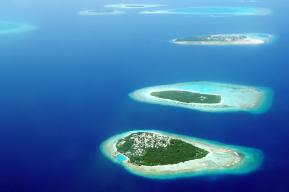Article
Ensuring Freedom of the Press Requires a Global Effort
Youth Multimedia Room
The articles was produced by the Youth Multimedia Room. The views and opinions expressed in this article are those of the contributors of the Youth Multimedia Room and do not represent the views of UNESCO or its partners. The designations concerning the legal status of any country, territory, city or area, or of its authorities, or concerning the delimitation of its frontiers or boundaries do not imply the expression of any opinion whatsoever on the part of UNESCO or its partners.
Speaking at the World Press Freedom Day session titled “Seeking common ground: how can multilateral initiatives shape the future of the information space”, UNESCO’s Assistant Director-General for Communication and Information, Tawfik Jelassi, said there is no country that can address the issue of freedom of expression locally.
Mr. João Brant, Secretariat of Communication of the Presidency of the Republic, Brazil, explained that although countries have different political positions, the issue of freedom of expression equally affects their economic, educational, and environmental conditions. He reflected on the need to consolidate global agreements that allow oversight of the information exercise, calling it a “global pact” to strengthen democracy and the participation of civil society.
While the Internet has made it possible for communication to transcend borders, there are currently no verification regulations for all the content that goes viral, as Camila Vallejo, Minister of the Secretary General of the Government of Chile, pointed out: “How could we implement global agreements to be more effective, so that this stops being such a harmful tool and starts to be a tool of democracy and inclusion?”
Understanding the scale of the disinformation challenges in terms of policies and research requires more evidence to contextualize the decisions of nations and propose effective solutions, according to Camille Grenier, from the Forum on Information and Democracy.
Melissa Flemming, who heads the UN Department of Global Communication, assures that “it is a large issue that has to be treated as we treat the environmental crisis. If there is information pollution, we have to do something about it.”
The panelists agreed that international cooperation is important to continue promoting initiatives such as those of UNESCO for the governance of digital platforms, but also aiming at training the producers of information and the users who receive the information.







